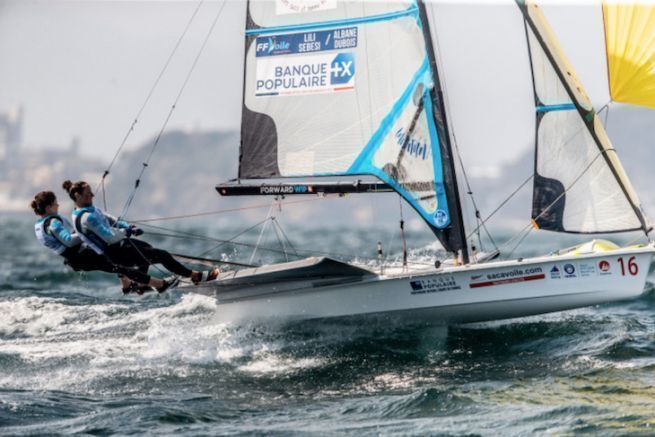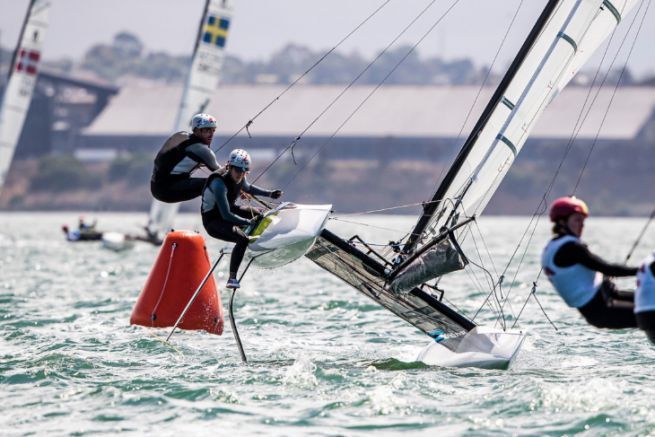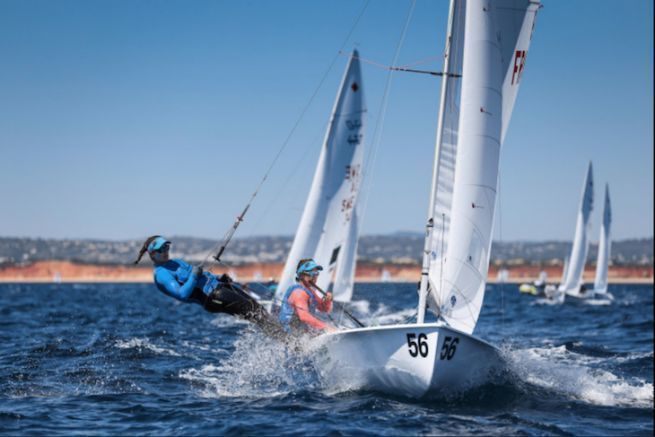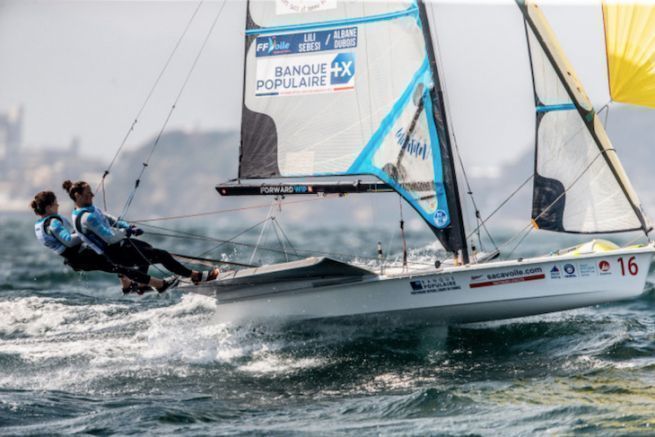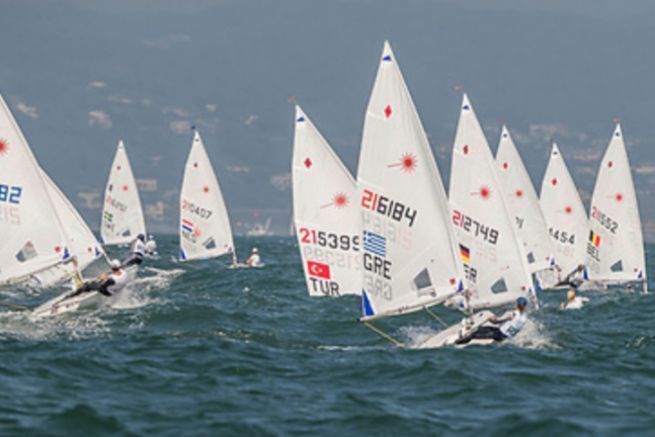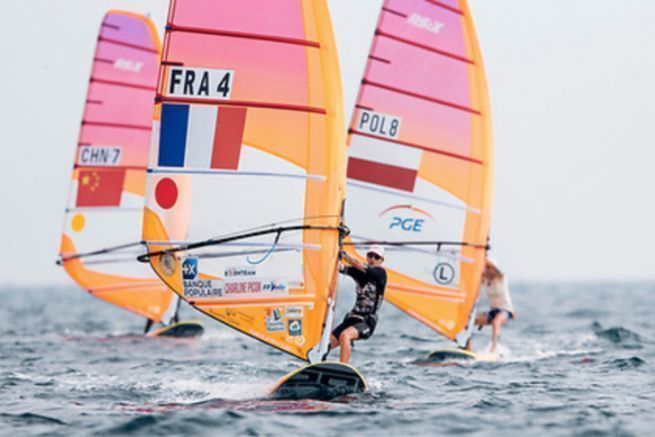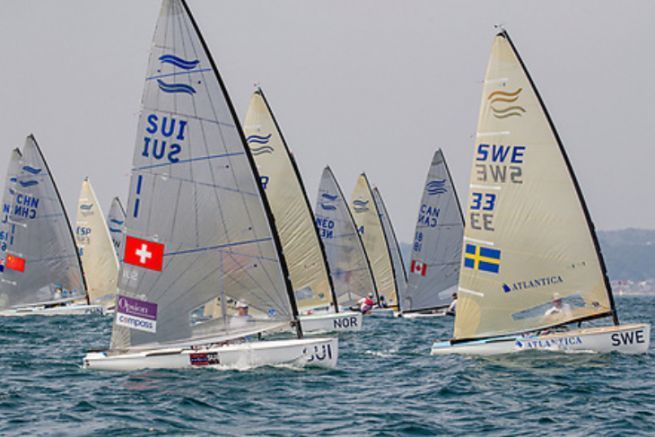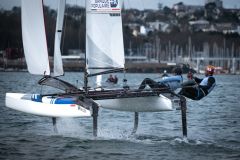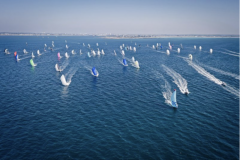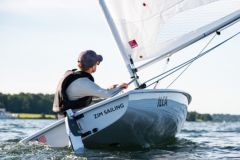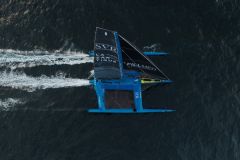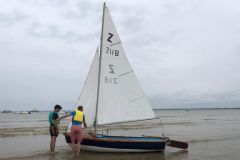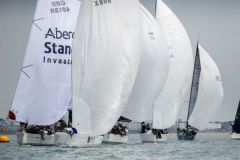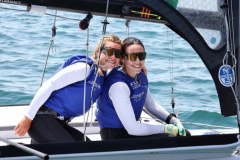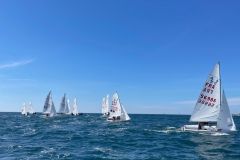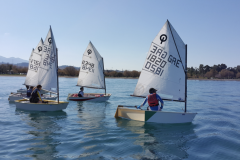A double skiff with the two sailors on the trapeze
The 49er owes its name to its 4.99 m long hull. It is a double skiff with a helmsman and a trapeze crew. Designed by the Australian Julian Bethwaite in 1994, it is an evolution of the Skiff International 14 and Aussie 18. It was selected in 1996 to become an Olympic support boat for the Sydney Olympics in 2000 after trials on Lake Garda in Italy, where different classes competed.
Due to the popularity of the 49er after its introduction as an Olympic class, the 49erFX becomes the women's single-handed event in Rio 2016, after trials in Santander, Spain. The hull is the same as the men's boat, but the mast and sail plan (45 m2) have been reduced compared to the men's (60 m2). They have been designed by Mackay Boats to accommodate a lighter crew weight.
"It is a monohull boat with wings to increase the trapeze torque and with important sails, including a spinnaker at the front. It reaches fast speeds, with 20 knots maximum. It is a support which offers very beautiful images during the Games" explains Guillaume Chiellino, Director of the French Sailing Team.
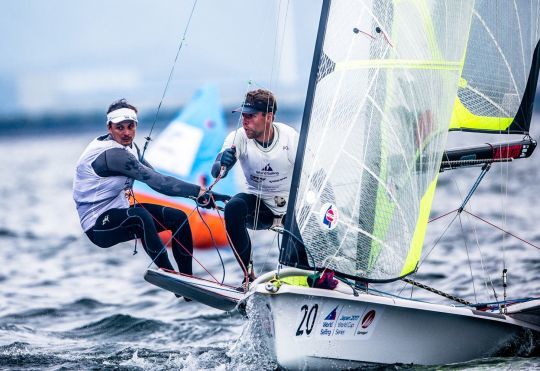
Two different roles on board
The two sailors on board have different roles; the helmsman usually makes the tactical decisions and steers the boat, while the crew member has a more physical role and controls the sails. The pair sails as much as possible above the water, on the trapeze; knowing that the mast can support a maximum weight of 165 kg, once the sailors are balanced. The skiff has a set of 3 sails: mainsail, spinnaker and jib.
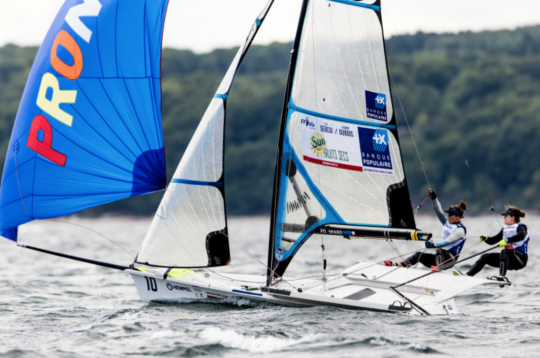
Titles of Olympic champions
In this category, three teams stand out with a gold and silver medal each. First the Spaniards Iker Martínez and Xabier Fernández with the gold in Athens in 2004 and the silver in Beijing in 2008. Followed the Australians Nathan Outteridge and Iain Jensen, beating the New Zealanders Peter Burling and Blair Tuke for gold in London in 2012. But in 2016, the roles were reversed as it was the Kiwis who won gold in Rio, with the Australians having to settle for silver.
For this new edition of the Olympic Games in Tokyo, only the duo Peter Burling/Blair Tuke will be back in the competition. They could well become the most titled team in 49er if they were to win medals again.
On the women's side, Brazil's Martine Grael and Kahena Kunze won gold at home in 2016. New Zealand's Alex Maloney and Molly Meech and Denmark's Jena Mai Hansen and Katja Salskov-Iversen won silver and bronze respectively.
The Tokyo edition, which will be the 2nd Olympic event of the 49erFX, could therefore see once again the Brazilian and Neozan duos winning a new medal, as the Danish no longer compete in the class.
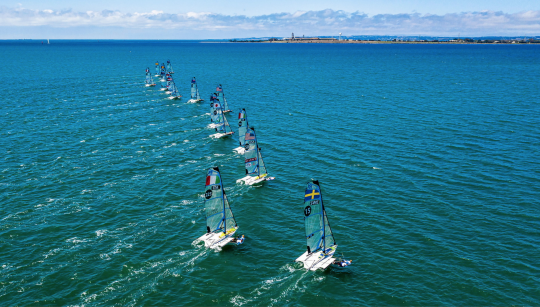
First participation in the Olympic Games for the French
There will be 19 male and 21 female crews competing for gold on the Tokyo Olympics . For France, we will find Lili Sebesi, a dinghy racer and then match racer before becoming an Olympic sailor in 49erFX and her teammate Albane Dubois, who had never raced before 2015 and her association with Lili. 4th in the 2020 World Championship, the two sailors who will participate in their first Olympic Games have the objective of making a top 10.
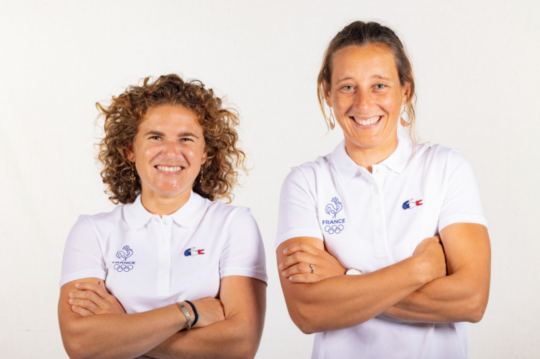
As for the men, Lucas Rual and Emile Amoros will represent France. They too will be participating in their first Games, having finished several times in the top 10 of major regattas and 7th in the 49er World Championship in 2019.
Both have been associated since 2012, and became world champions in the 29er in 2013, before experiencing a great rise in the 49er.
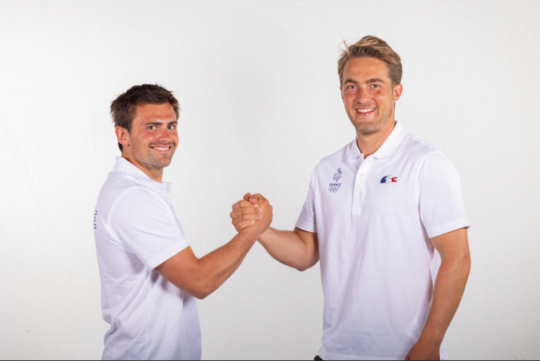

 /
/ 